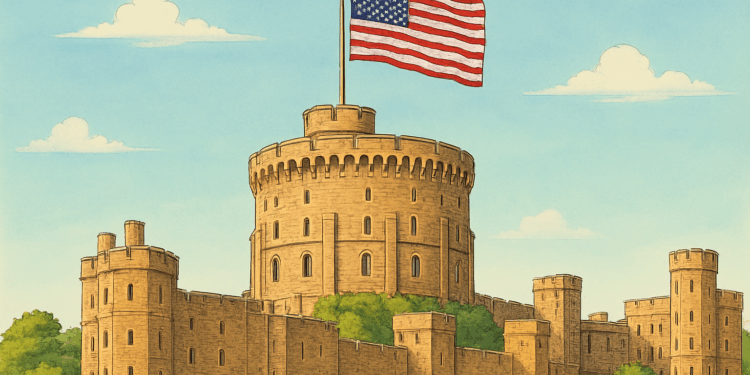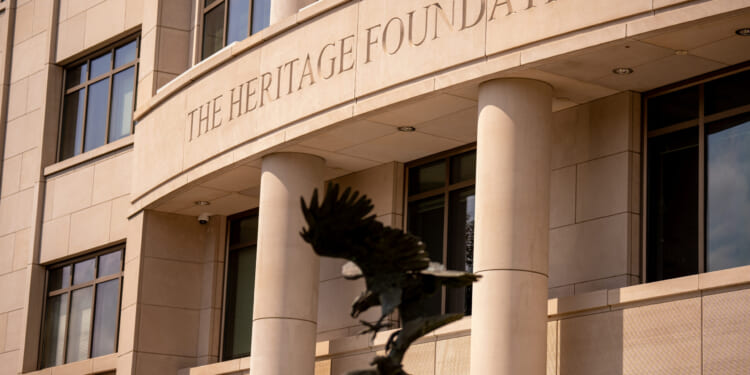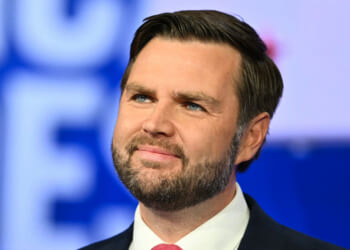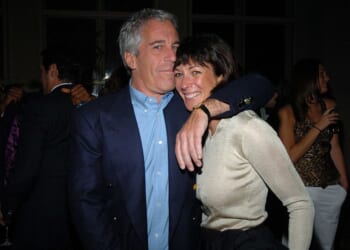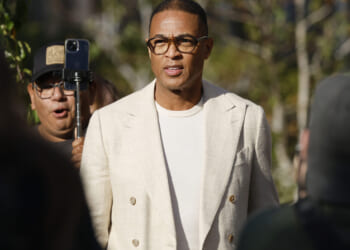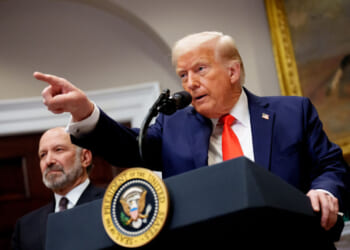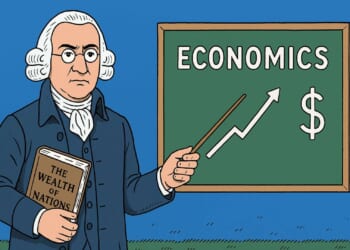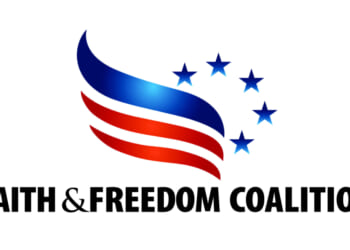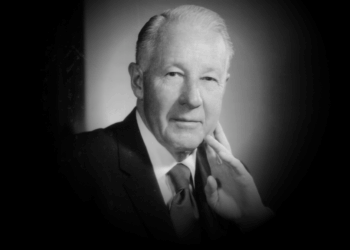Trade diplomacy at Windsor Castle.
Before Donald Trump’s state visit to the United Kingdom, there was no shortage of speculation that something might go wrong. Perhaps demonstrators would cause disruption. Or there would be some diplomatic row. The dismissal of the British Ambassador to Washington, Lord Mandelson, just a few days earlier was hardly an encouraging portent.
As it turned out, the visit was a triumph that reasserted the special relationship. There was plenty of pomp and splendor, of course. Nothing wrong with that. Having the magnificent spectacle broadcast around the world did no harm at all to Trump or his hosts. We had the Carriage Procession towards Windsor Castle, the Guard of Honour, with the State Colours of the Grenadier Guards, Coldstream and Scots Guards at the Quadrangle of the Castle, the flypast by UK and US F-35 military jets and the Red Arrows, and the State Banquet in St. George’s Hall for the President and First Lady with all the dressing up.
But it wasn’t all bling. Beyond the pageantry came news of deepening economic links between the United States and the United Kingdom. The Technology Prosperity Deal promises huge investment. It is “a landmark science and technology agreement valued at $350 billion in combined US–UK commercial outcomes.”
The UK Prime Minister Sir Keir Starmer told President Trump: “The US is our single, biggest, largest trading partner. Companies like BP, GSK, Rolls Royce and AstraZeneca employ thousands of people in the United States. American companies like Microsoft, Citigroup, Amazon and Blackstone do the same here. Together we support over 2.5 million jobs across both economies.”
So the ambition is to go even further. These are commercial decisions made by private companies. So why should politicians be muscling in making announcements and claiming credit? Why the wining and dining of the “tech bros”? Room was found at the Windsor Castle banquet for Apple’s boss Tim Cook, Nvidia’s Jensen Huang, OpenAI’s Sam Altman, Blackstone’s Stephen Schwarzman, and Fox News owner Rupert Murdoch. Actors and pop singers were sidelined in favor of tycoons.
Some suggested that all this theater was irrelevant. If the investment were profitable, it would happen anyway, and jumbling it together into a big announcement was mere PR opportunism. There is some truth in that. But politics cannot be ignored—as so often regulatory barriers can thwart progress. The paradox is that one must talk to politicians to stop political interference.
That is certainly a message that Starmer needs to hear. For all his broad rhetoric about trade and enterprise, his domestic agenda reflects his socialist prejudices that the successful should be punished with higher taxes and that any social problem requires state meddling as a moral imperative.
For example, the UK’s Digital Services Tax, which imposes a 2% levy on the revenues generated from UK users by large digital platforms. This is a barrier to potential and has a “chilling effect” on investment. We also have our Online Safety Act, objectionable on principle for undermining free speech, but also damaging by imposing more burdensome compliance requirements.
A more positive reflection is that the European Union’s stance is even more obstructive. Brexit has allowed the UK to be more enlightened. “This country is regulating AI as an opportunity to be seized, while the EU is regulating it as a threat to be contained,” writes Ambrose Evans-Pritchard in the Daily Telegraph. He adds: “The EU’s AI industry will hold on to niche sectors but it has already lost the larger systemic prize, just as it lost cloud computing irreversibly to America’s hyperscalers.”
Trump also needs to be persuaded of the futility of siege-economy isolationism. US investment in the UK is not money “lost” to the US, nor is it an act of benevolence. It is a mutual benefit. The UK gets 5,000 high-skilled jobs. But the US gets the return on investment from those British nerds toiling away on its behalf. The collaboration of talent expands markets on both sides.
It isn’t necessary to like people you do business with, but it helps. In his speech Trump declared:
The British gave the world the Magna Carta, the modern parliament, and Francis Bacon’s scientific method. They gave us the works of Locke, Hobbes, Smith, and Burke, Newton, and Blackstone. The legal, intellectual, cultural, and political traditions of this kingdom have been among the highest achievements of mankind. There’s really never been anything like it. The British Empire laid the foundations of law, liberty, free speech, and individual rights virtually everywhere the Union Jack has ever flown, including a place called America.
You don’t get much more pro-British than that. He was actually rather more emphatic about praising British history than Starmer or some of our other own politicians would have been, with a rather more craven and apologetic tone.
Trump continued: “We’re joined by history and fate, by love and language, and by transcendent ties of culture, tradition, ancestry, and destiny. We’re like two notes in one chord or two verses of the same poem, each beautiful on its own, but really meant to be played together.”
The King had earlier remarked: “We have celebrated together, mourned together, and stood together in the best and worst of times.”
There was plenty of other business on the agenda, of course, such as the Ukraine war, energy security, the push for more nuclear power. Starmer and Trump are not natural bedfellows—either politically or temperamentally. It remains frustrating that tariffs and other barriers to wealth creation remain in place. Yet in a difficult and dangerous world, the State Visit offered some cause for celebration.

